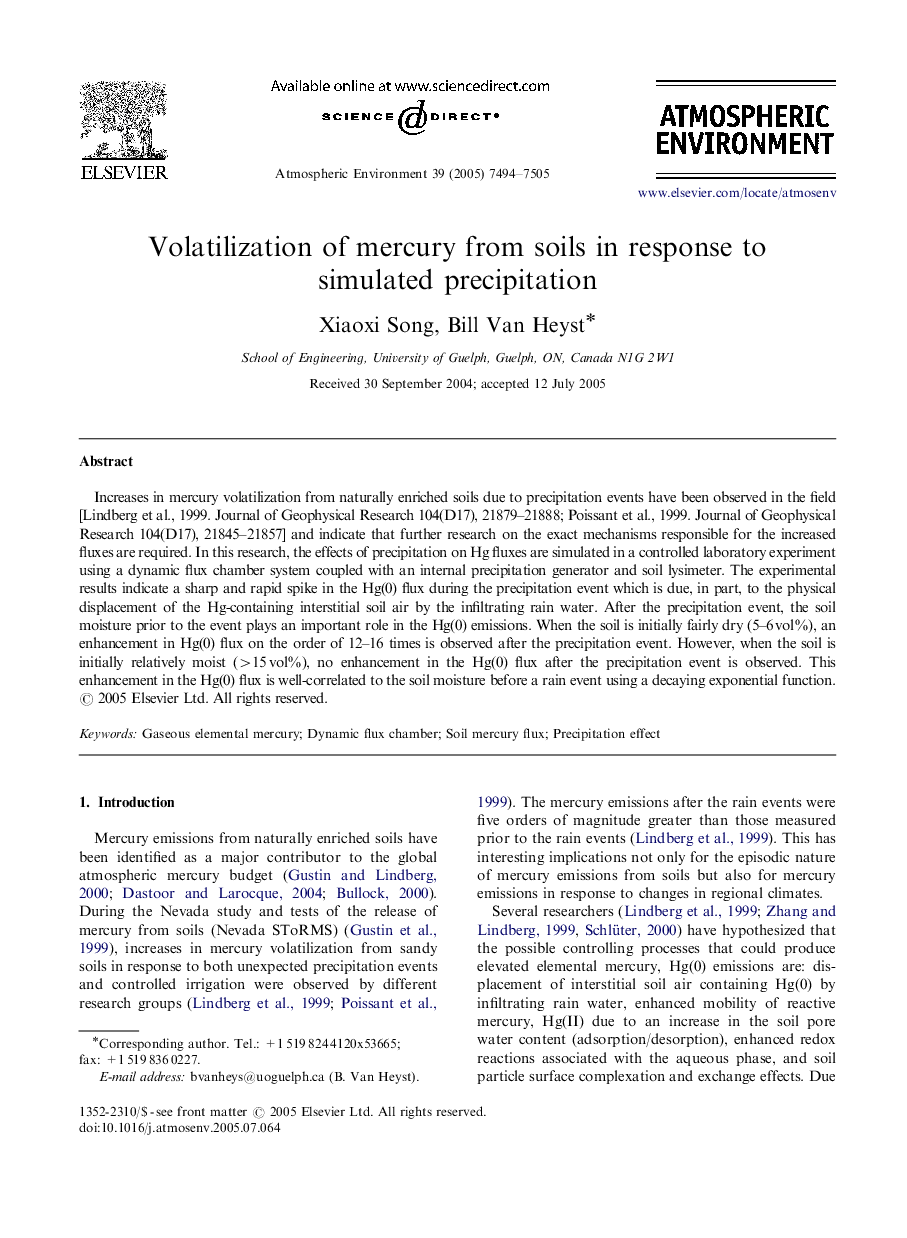| Article ID | Journal | Published Year | Pages | File Type |
|---|---|---|---|---|
| 4444922 | Atmospheric Environment | 2005 | 12 Pages |
Increases in mercury volatilization from naturally enriched soils due to precipitation events have been observed in the field [Lindberg et al., 1999. Journal of Geophysical Research 104(D17), 21879–21888; Poissant et al., 1999. Journal of Geophysical Research 104(D17), 21845–21857] and indicate that further research on the exact mechanisms responsible for the increased fluxes are required. In this research, the effects of precipitation on Hg fluxes are simulated in a controlled laboratory experiment using a dynamic flux chamber system coupled with an internal precipitation generator and soil lysimeter. The experimental results indicate a sharp and rapid spike in the Hg(0) flux during the precipitation event which is due, in part, to the physical displacement of the Hg-containing interstitial soil air by the infiltrating rain water. After the precipitation event, the soil moisture prior to the event plays an important role in the Hg(0) emissions. When the soil is initially fairly dry (5–6 vol%), an enhancement in Hg(0) flux on the order of 12–16 times is observed after the precipitation event. However, when the soil is initially relatively moist (>15 vol%), no enhancement in the Hg(0) flux after the precipitation event is observed. This enhancement in the Hg(0) flux is well-correlated to the soil moisture before a rain event using a decaying exponential function.
